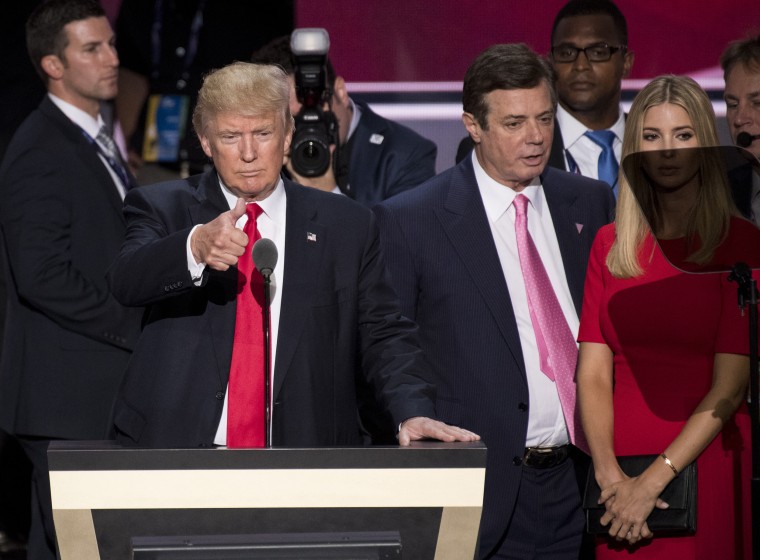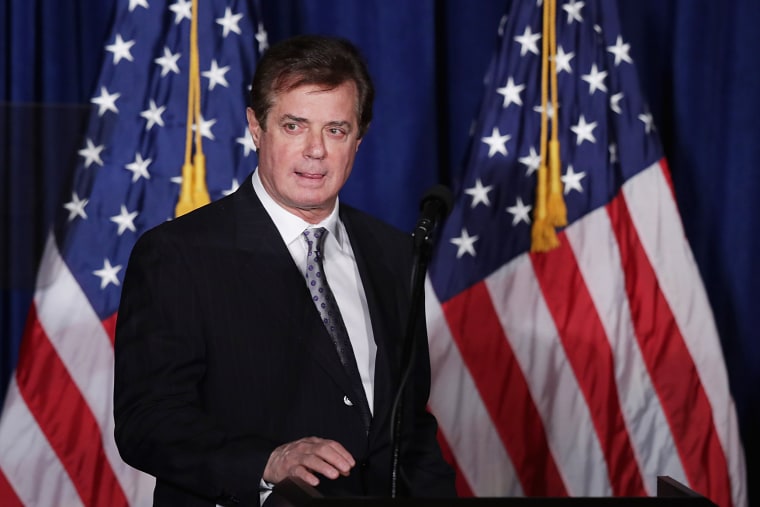Donald Trump once railed against a Watergate-era reform law that prohibits American companies from bribing foreign government officials.
"What are we — prosecuting people to keep China honest?" he said in 2012. "Now every other country goes into to these places and they do what they have to do. It’s a horrible law and it should be changed. I mean, we are like the policemen for the world. It’s ridiculous."
Could it be that the very law that Trump slammed is what prosecutors could be using as leverage to cut a deal with Paul Manafort?
What is the Law?
Payoffs and payback were a big issue coming out of President Richard Nixon’s 1972 campaign when an investigation revealed that corporate slush funds had been used for political contributions and for bribing foreign government officials with an eye to landing contracts overseas.
As a result, in 1977 Congress passed the Foreign Corrupt Practices Act (FCPA), the first U.S. statute criminalizing the bribery of foreign officials.
Breaking the law is punishable by up to 20 years in prison.
Two of the top prosecutors on Special Counsel Robert Mueller’s teams, which is investigating the Trump campaign's ties to Russia, have significant FCPA experience — Andrew Weissmann, former chief of the Criminal Division’s Fraud Section, and Greg Andres, former deputy assistant attorney general in the Criminal Division.
Andres testified before the Senate Judiciary Committee in 2010 about DOJ’s enforcement of the anti-corruption law.
"We do not hesitate to seek jail terms for these offenders when appropriate," he told the committee. "The department has made the prosecution of individuals a critical part of its FCPA enforcement strategy — we understand well that it’s an important and effective deterrent."
So how does the Foreign Corrupt Practices Act figure in the Russia investigation — at least from what we know so far?
While the main theories of the case in the Russia probe have focused on hacking, conspiracy, or financial crimes, this international anti-corruption law could be yet another vital tool in Mueller’s arsenal in getting Manafort to cooperate.
William Steinman, a Washington D.C.,-based attorney and an FCPA expert, said he believes Mueller and his team will use the law "not with the intent of taking him to court, but to add to the list of issues his lawyers have to wrangle with."

"They’ll keep piling it on in the hopes that it’s too hard and too exhausting to fight," he said. "They want to build pressure, make plausible arguments and induce people to roll over."
A person is guilty of violating the law if the government can prove:
1) A U.S. citizen or company organized under the laws of a U.S. state
2) offers, promises to offer or gives
3) Money or anything of value
4) to a foreign official or someone acting in an official capacity on behalf of a foreign official
5) In order to obtain/retain business
Why is this a problem for Manafort?
He offered to give "private briefings" to Russian oligarch Oleg Deripaska on the 2016 campaign. The email exchanges suggest this could have been a quid pro-quo exchange.
"How do we use [this] to get whole?" Manafort said in one email exchange with a Kiev-based employee of his consulting firm days after Trump has named Manafort as campaign chairman.
Manafort’s spokesman said the email exchanges were only an "innocuous" effort to collect past debts.
But several months ago, The New York Times reported that Manafort owed as much as $17 million in debts to Russia-backed benefactors when he joined the Trump campaign.
That includes $7.8 million allegedly owed to a shell company in the British Virgin Islands connected to Deripaska, who was described in U.S. diplomatic cables as "among the 2-3 oligarchs Putin turns to on a regular basis."
The oligarch also accused Manafort and his business partner Rick Gates of taking nearly $19 million intended for investment and then failing to account for the funds or return them, according to a 2014 court petition from the Cayman Islands.
If he intended to use those briefings to pay off past debts, collect on money owed or get new consulting work from the Russians, this could violate the FCPA.
This anti-corruption law looks at whether someone tried to bribe a foreign official with either money, or something else of value.
Based on the Justice Department’s past guidelines, federal prosecutors could certainly argue those briefings held value.
DOJ rules say that the term "foreign official" means not only any officer or employee of a foreign government but also any person acting in an official capacity for or on behalf of any such government.
Deripaska has stated in court documents that he has a diplomatic passport from Russia. He’s also sworn under oath that he's "on occasion" represented the Russian government abroad, for example, as a diplomat before the APEC, the Asia-Pacific Economic Cooperation, an international body based in New York.
But even if this oligarch wasn't working directly for the Russian government, if he was working on Putin's behalf, that too could count.
Now, it's a long way from certain that Mueller's using this law to go after Manafort. But considering breaking this law brings a 20-year prison sentence, it's a powerful tool for a federal prosecutor.

